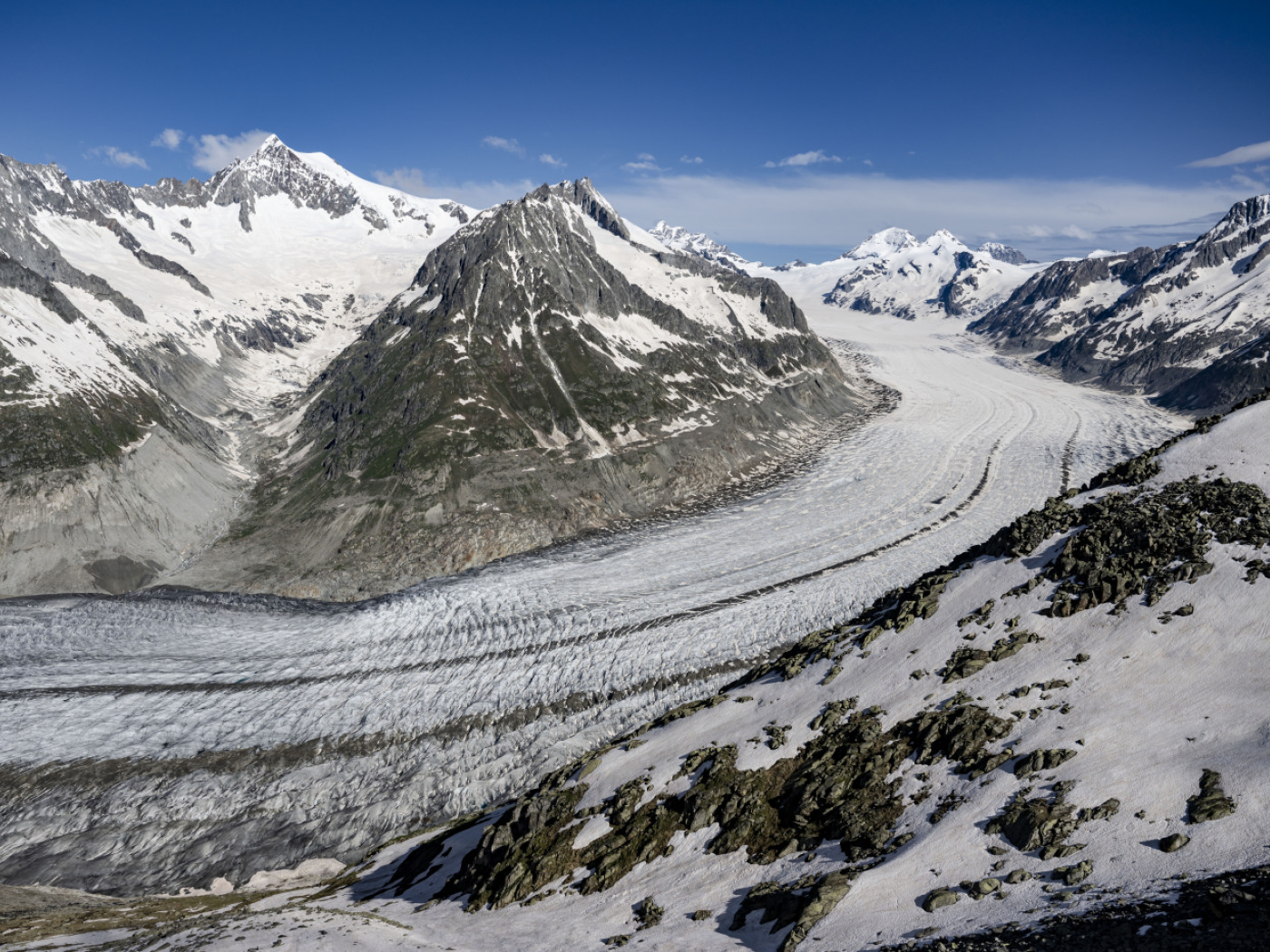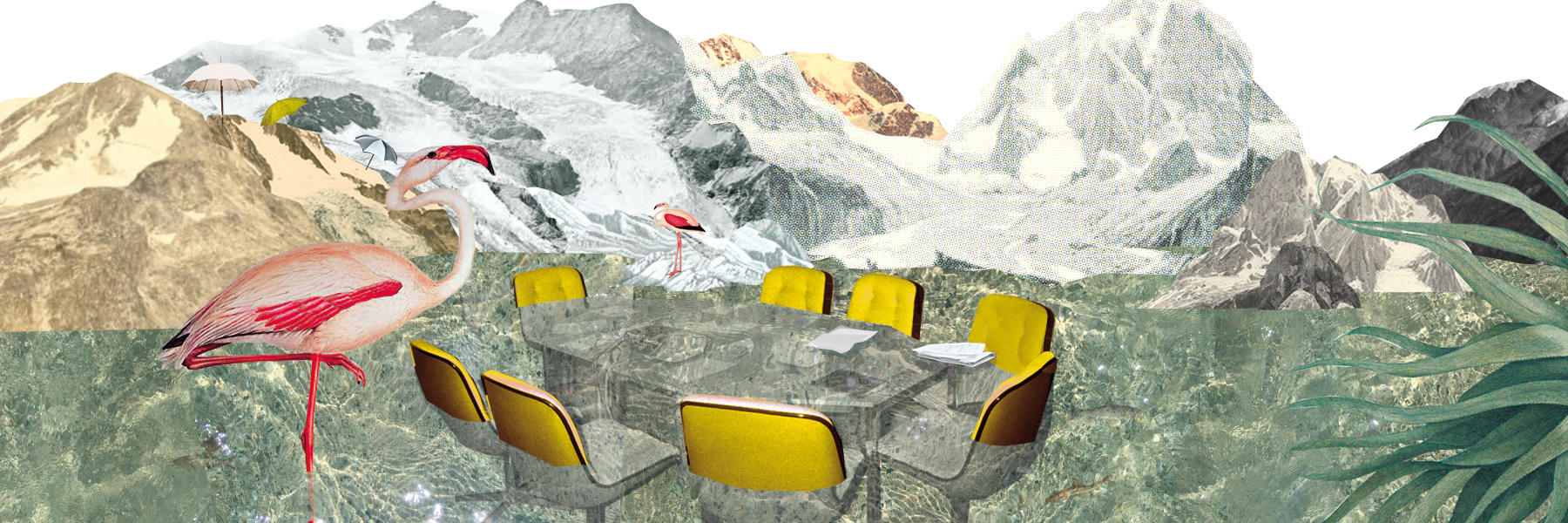
Swiss Aletsch glacier ‘will disappear by 2100’

The Aletsch glacier in Switzerland is likely to disappear by 2100 if nothing is done, according to Legambiente, an Italian group that monitors the health of glaciers in Italy and abroad.
+Get the most important news from Switzerland in your inbox
“The Aletsch glacier looks like an ocean of ice in great distress, despite the last snowfalls in July”, said ecologists and scientists present at a press conference.
Between 2000 and 2023, the glacier retreated by an average of 40 metres a year, according to Glamos, the Swiss glacier monitoring network.
At this rate, and without taking into account a higher level of global warming than today, the glacier will disappear in its current form by 2100, “leaving only patches of ice at the highest altitudes”.
Worrying situation
The study, carried out jointly by the Glacier Caravan of Legambiente, Italy’s leading environmental organisation, CIPRA Italy and the Italian Glaciological Foundation, highlighted the increasingly worrying fragility and instability of the largest glacier in the Alps.
What is your opinion? Join the debate:
“We are mainly concerned about the presence of unstable morenes and active faults along the upper slopes of the glacier,” explain the experts. “The reason for this? The climate crisis, with its perceived rise in temperatures in the Alps of 2.9 degrees since pre-industrial times (1850), according to the Swiss Climate Service.”
“On the Aletsch glacier, we have seen how the health of the glacier also affects the stability of the slopes,” continues Marco Giardino, professor of glaciology at the University of Turin.
“The gradual reduction in the volume of this glacier has triggered a series of deformations on the left side of the valley: fractures of increasing size downwards and a rate of change that has increased over time.”

More
Why melting glaciers affect us all
Now in its sixth year, the aim of the Glacier Caravan is to raise politicians’ awareness of the decline in glaciers and the urgent need to take action to save them. “We have created a manifesto to help the European Union monitor glaciers more effectively and develop governance, interdisciplinary work and international collaboration,” explains Vanda Bonardo, Legambiente’s national Alps manager.
The document addresses a number of issues, including biodiversity, tourism, mountain instability linked to global warming, ecosystems and local development. “Our approach is intended to be an ecological and scientific partnership”, explained Bonardo.
Two years after the Morteratsch
The publication is supported by 80 organisations, including the University of Turin, NGOs, Pro Natura and CIPRA Switzerland, as well as the German Environment Agency.
“As in the case of Blatten, only a rigorous study of the relationship between global warming and natural instability will make it possible to better predict the evolution of the Alpine environment and to plan better management of the natural heritage and the territory”, points out Marco Giardino, who is also vice-president of CIPRA Italy.
A UNESCO World Heritage Site, the Aletsch glacier is the second Swiss glacier to be analysed by Legambiente after the Morteratsch glacier in Graubünden, in 2023. It is now just 20 km long.

More
Melting permafrost threatens mountain regions. What can be done?
Translated from French by DeepL/mga
We select the most relevant news for an international audience and use automatic translation tools to translate them into English. A journalist then reviews the translation for clarity and accuracy before publication.
Providing you with automatically translated news gives us the time to write more in-depth articles. The news stories we select have been written and carefully fact-checked by an external editorial team from news agencies such as Bloomberg or Keystone.
If you have any questions about how we work, write to us at english@swissinfo.ch

In compliance with the JTI standards
More: SWI swissinfo.ch certified by the Journalism Trust Initiative

























You can find an overview of ongoing debates with our journalists here . Please join us!
If you want to start a conversation about a topic raised in this article or want to report factual errors, email us at english@swissinfo.ch.